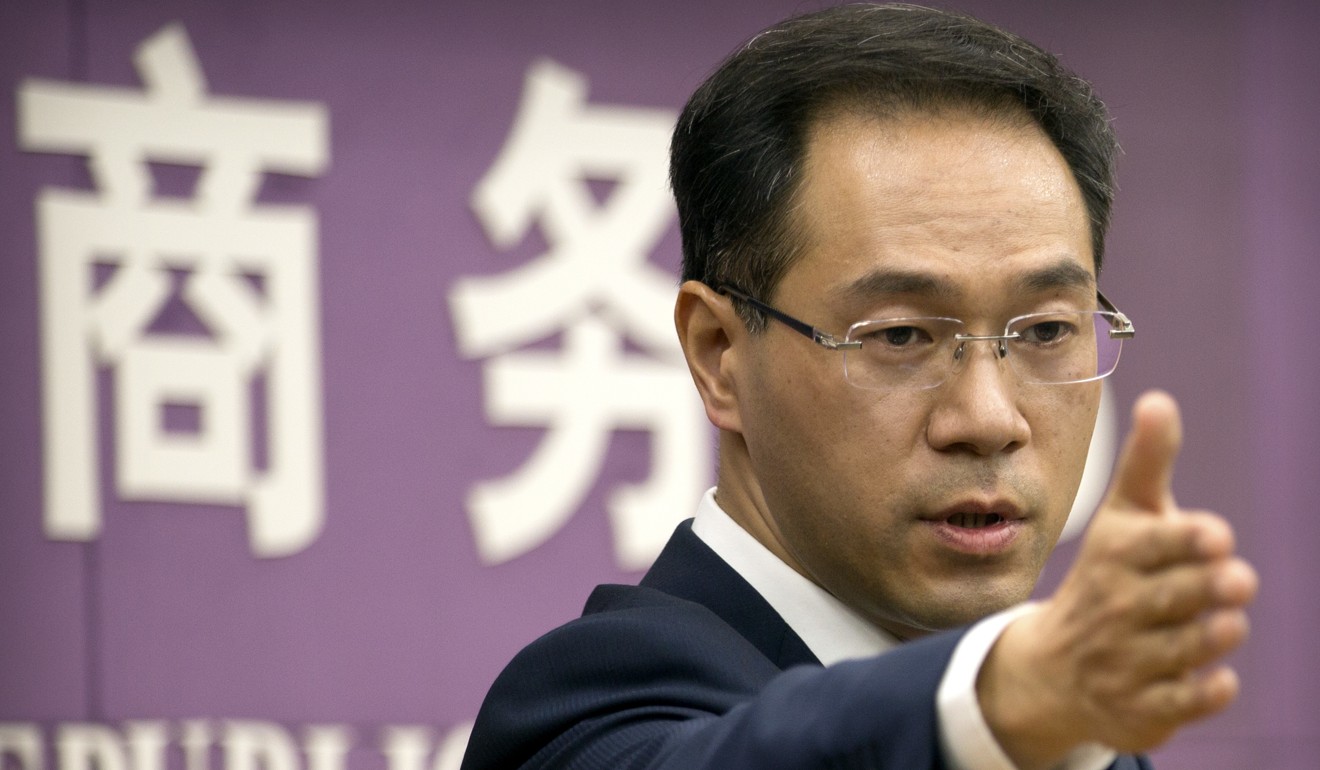
China Commerce Ministry calls for US cooperation to reach trade deal in Trump-Xi meeting
- The Chinese Commerce Ministry called for the US to cooperate to help reach a trade deal during the meeting between presidents Trump and Xi on Saturday
China’s Commerce Ministry called on Thursday for the United States to show a cooperative attitude in the meeting this weekend between President Xi Jinping and US President Donald Trump to reach a deal to end the trade war.
“The economic teams on both sides are in contact to fulfil the consensus reached by the two leaders,” spokesman Gao Feng said at a news briefing in Beijing.
“We hope the US will join our efforts to achieve a good result,” he added.
Financial markets are hoping that a ceasefire deal, if not a comprehensive agreement, will be reached at the dinner meeting in Argentina on Saturday, the first direct contact between the two leaders since the trade war began.

The Ministry of Commerce (MOFCOM) plays an important role on Beijing’s negotiation team, as it is in charge of responding to the US contention that China engages in “unfair” trade practices. The ministry is also involved in plans for purchasing more US exports to narrow the trade imbalance between the two nations.
However, Washington has a long list of demands, many of which go far beyond export issues. They include improving US corporations’ access to Chinese markets; ending China’s practice of forcing US companies to transfer their technologies to their Chinese partners; eliminating state subsidies for domestic firms; and toughening protections for intellectual property rights.
Trump confirmed two weeks ago that he had received from Beijing a list of 142 proposed concessions, including “a lot of the things” the US has asked for. He added, though, that “four or five big things were left off”.
The US has maintained pressure on China, with Trump saying this week it is “highly unlikely” that he will drop plans to raise tariffs on US$200 billion of Chinese exports to 25 per cent on January 1, from 10 per cent now. Trump also again threatened to impose tariffs on the remaining US$267 billion in Chinese imports not already sanctioned if his meeting with Xi fails to make progress.
The Office of the US Trade Representative, headed by China critic Robert Lighthizer, warned in a report last week that “China fundamentally has not altered its acts, policies and practices related to technology transfer, intellectual property and innovation”.
Watch: When Xi and Trump meet this weekend
In the Thursday briefing, Gao criticised the opposition of some countries — he did not name the United States — to using the World Trade Organisation’s dispute-resolution process to settle trade problems. The US has refused to approve the reappointment of one of the panel’s judges, which jeopardises its functioning.
Gao also warned that unilateralism and protectionism pose risks to the global economy.
Beijing, along with the European Union, has tabled two proposals to reform the WTO dispute resolution mechanism to improve its efficiency and independence, Gao said.
The Commerce Ministry will work with the National Development and Reform Commission and the Ministry of Justice to revise or remove by the end of 2019 any government policies that impede the further opening of the economy, Gao added.
Ding Shuang, a senior economist at Standard Chartered Bank, said that Beijing has a strong incentive to end the trade war: not only are the stimulative actions it must take to offset the impact of the conflict costly, they also deviate from original policy targets of structural adjustment and reducing excessive and risky levels of debt.
A further escalation of tensions would force many industrial firms to move out of China and could lead to the de-coupling of the two economies, he warned.
The analytics team at the Pu Shan Foundation in Shanghai tried on Thursday to lower expectations ahead of the Trump-Xi meeting.
“We can’t expect [Trump and Xi] to accomplish the whole task at one stroke. Instead, we still need medium- and long-term plans,” it said in a report posted online.
“China should make preparations for both eventualities. It needs to quicken the pace of market-oriented reforms even if no deal is reached,” it added.
Analysts have widely predicted a further slowing of the Chinese economy next year as the full impact of the trade war hits home.
On Saturday, Renmin University released a report forecasting that Chinese economic growth would slow to 6.3 per cent in 2019 from the 6.7 per cent recorded in the first three quarters of this year.

